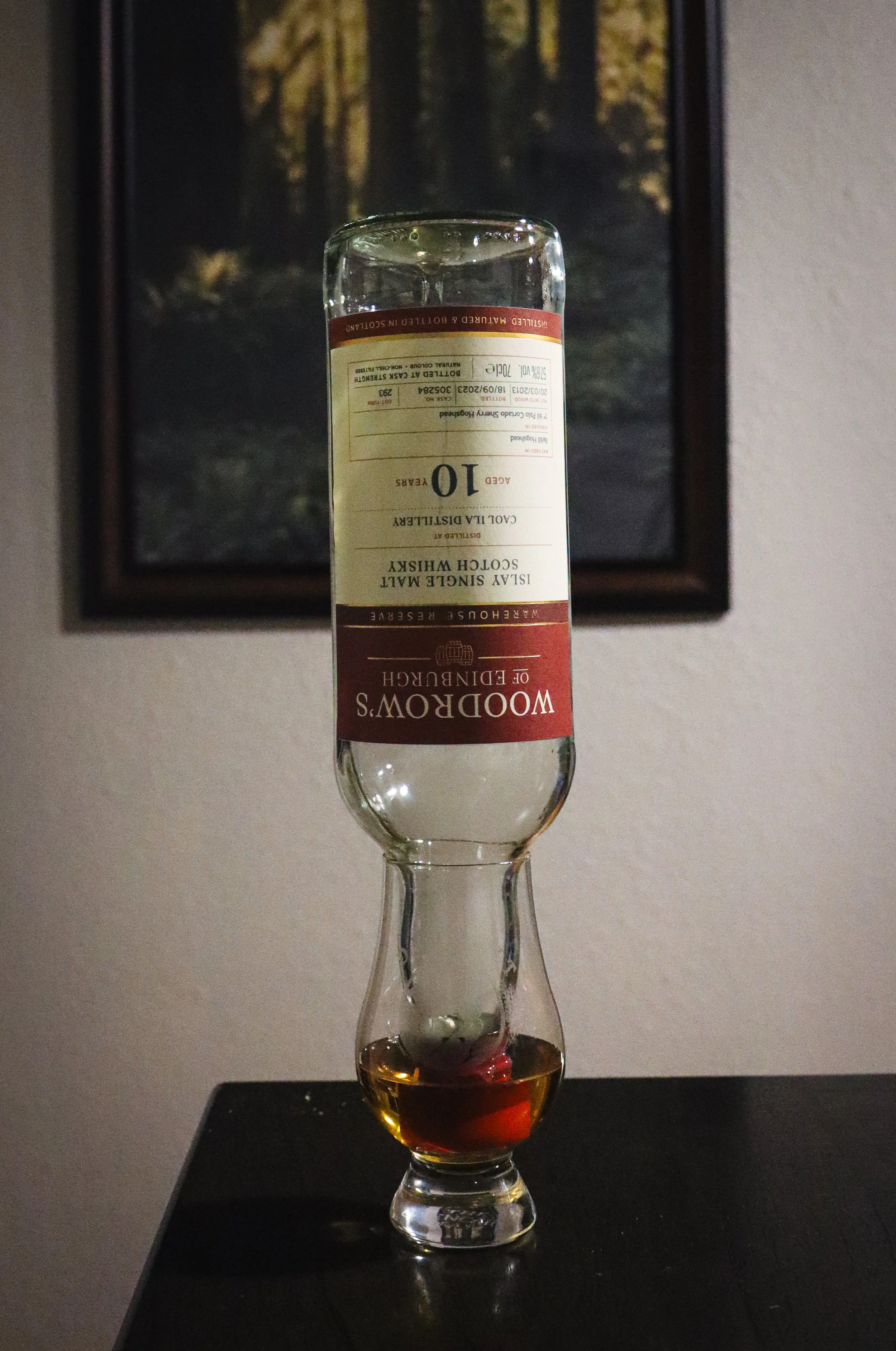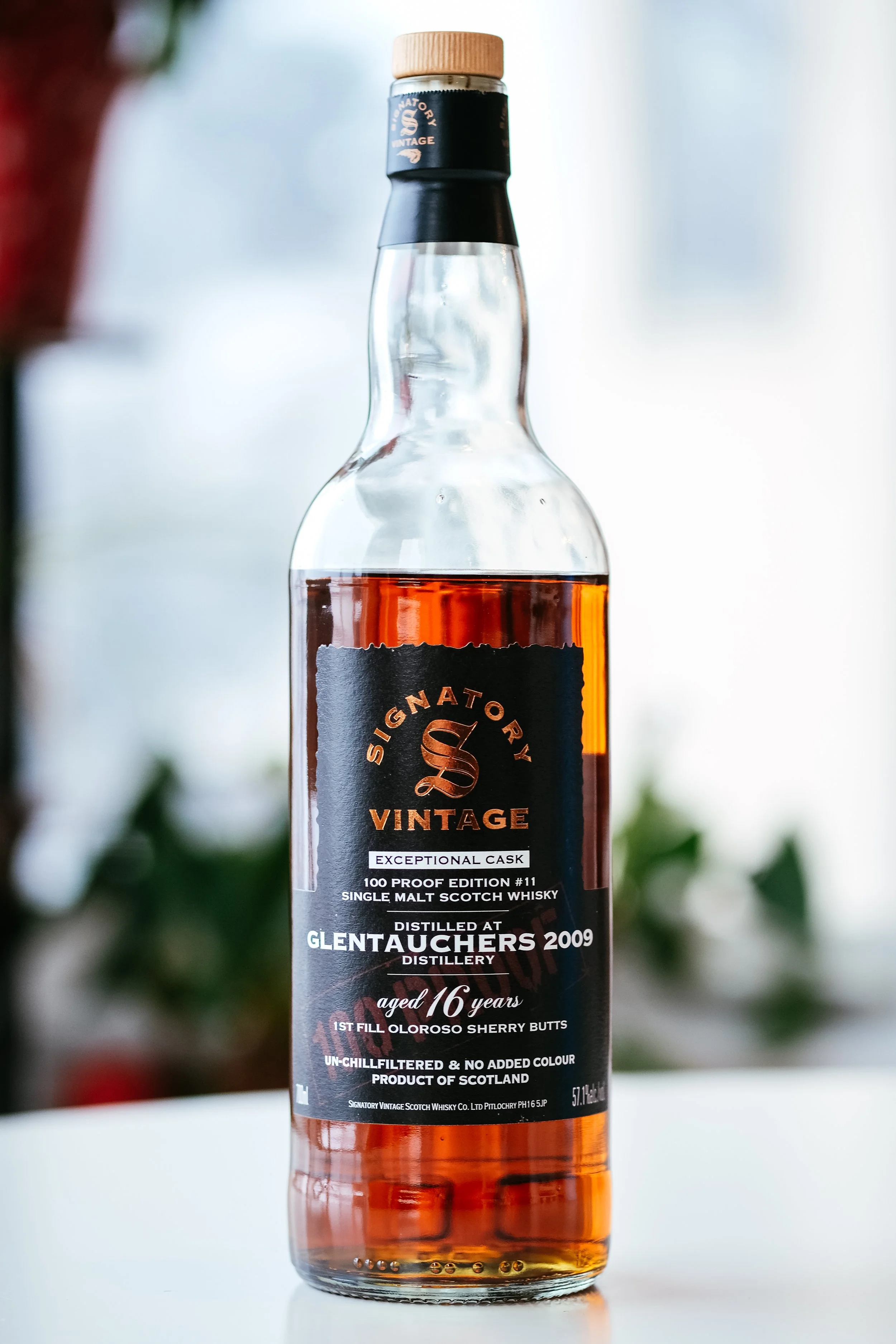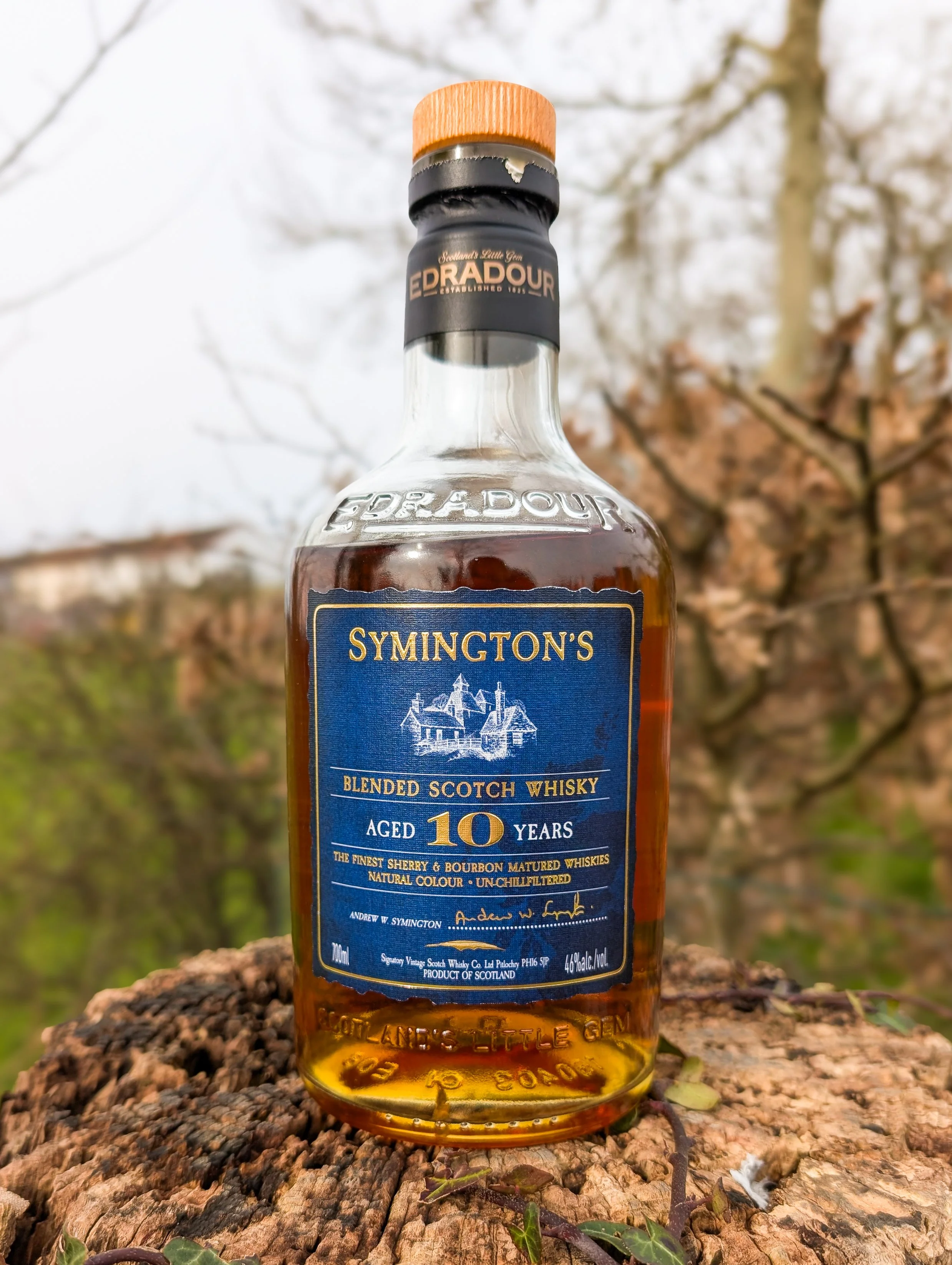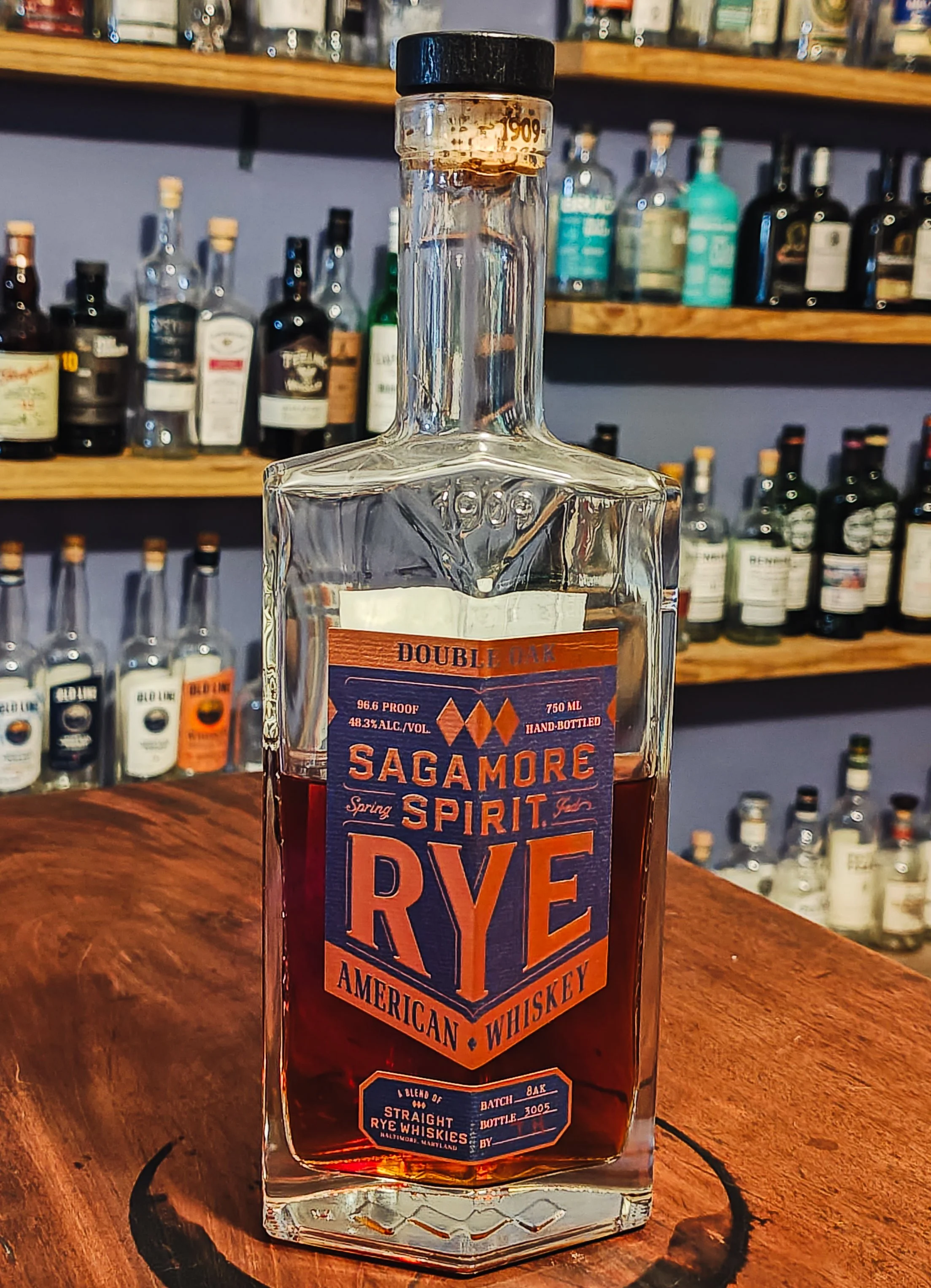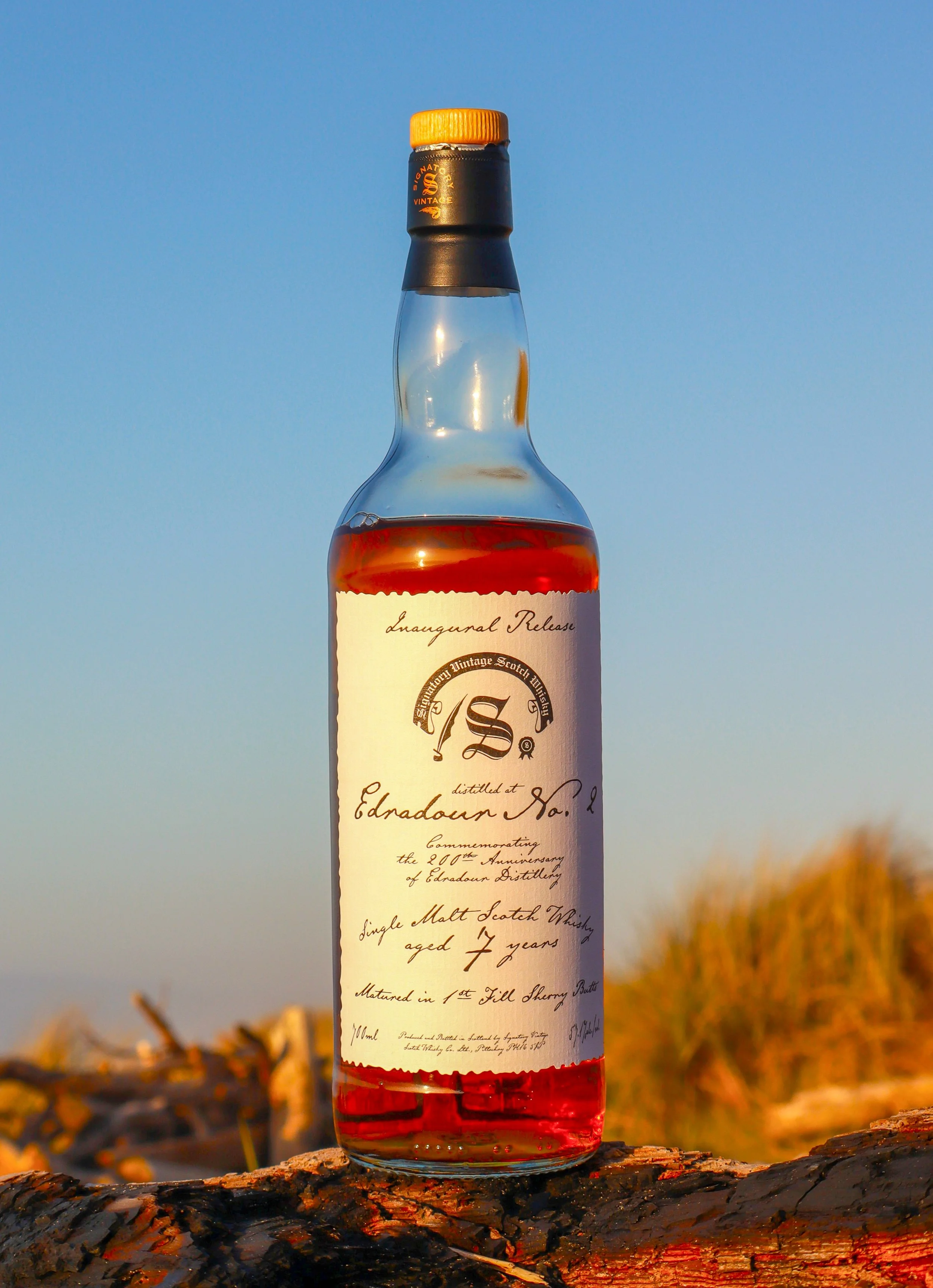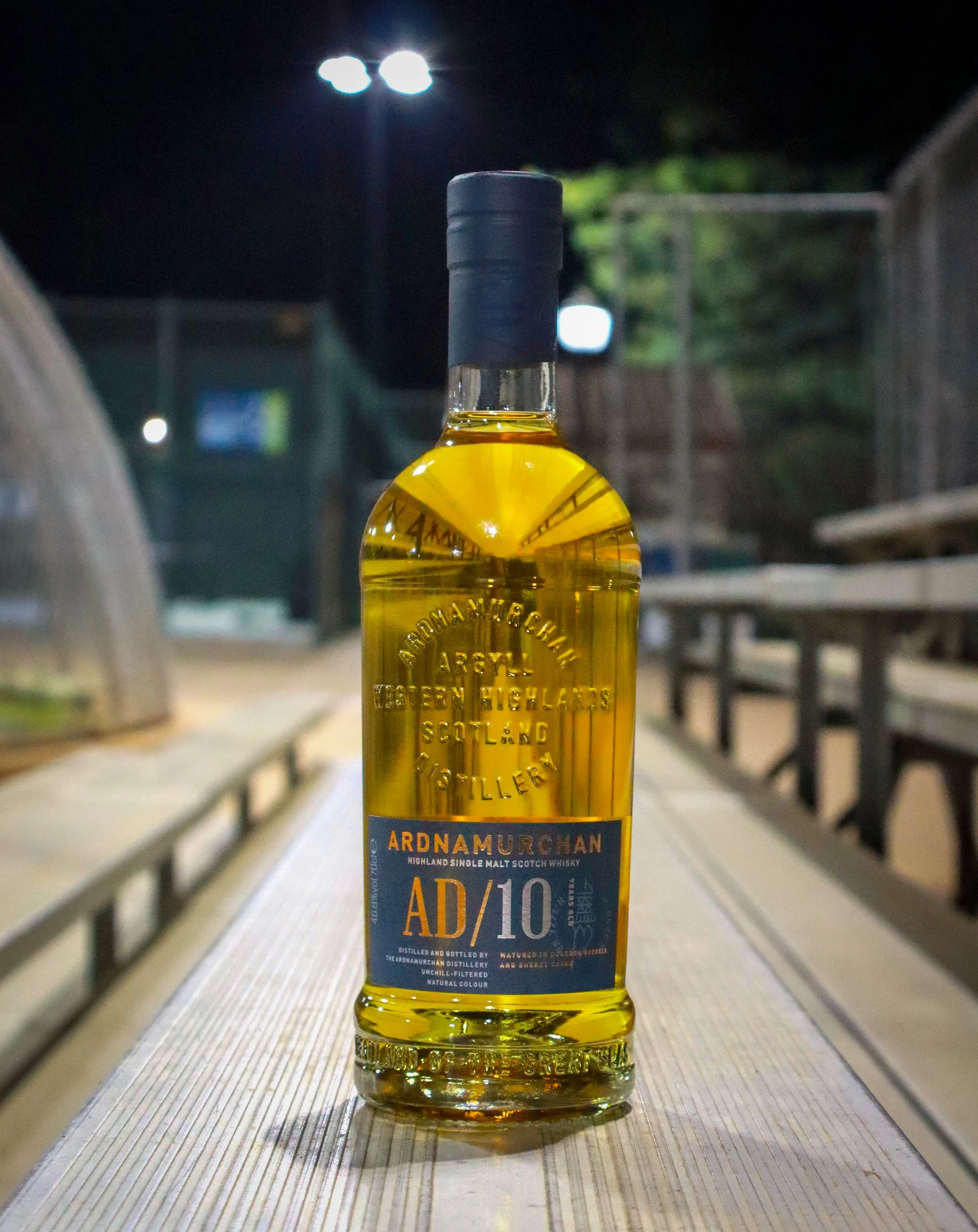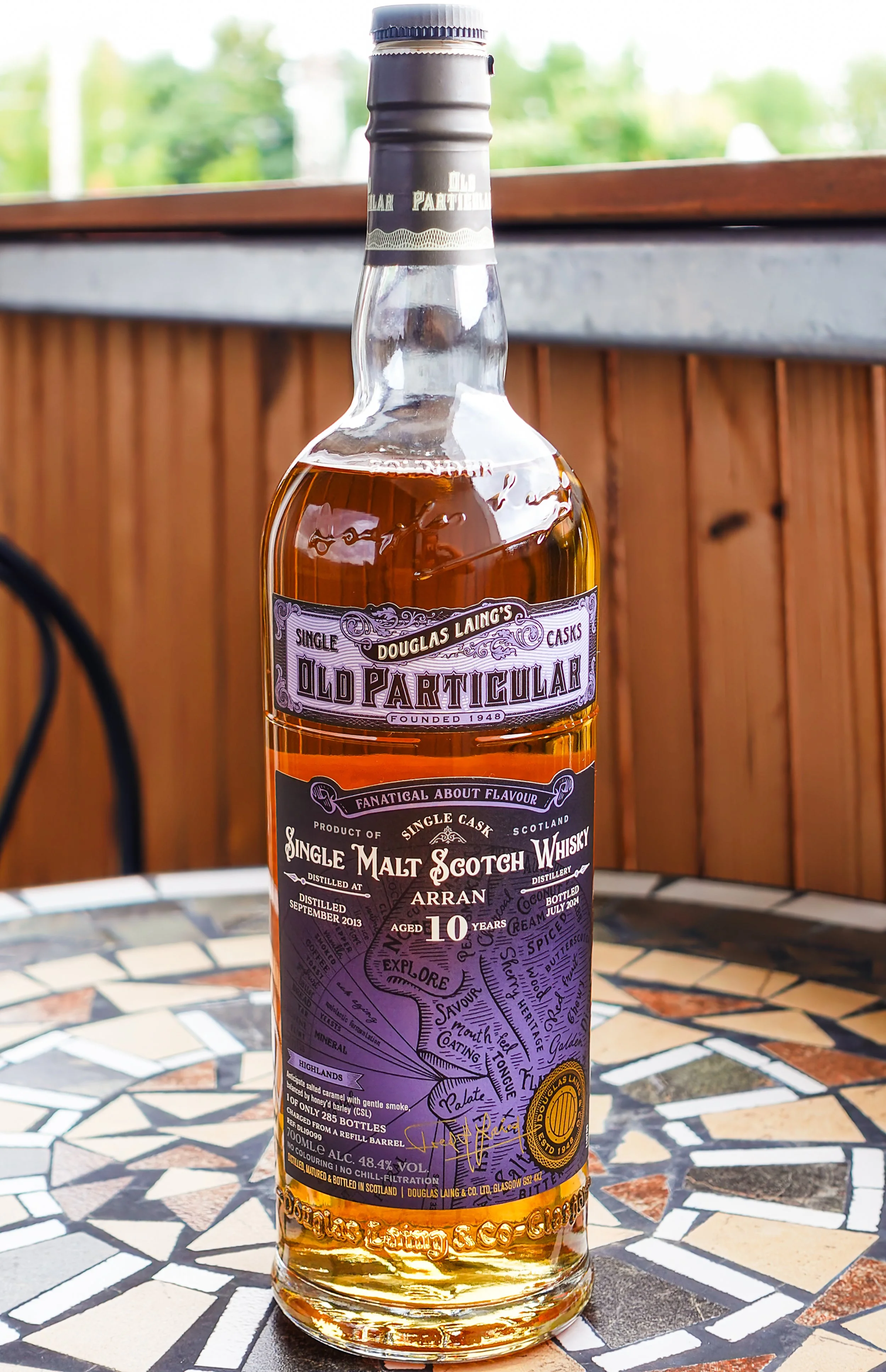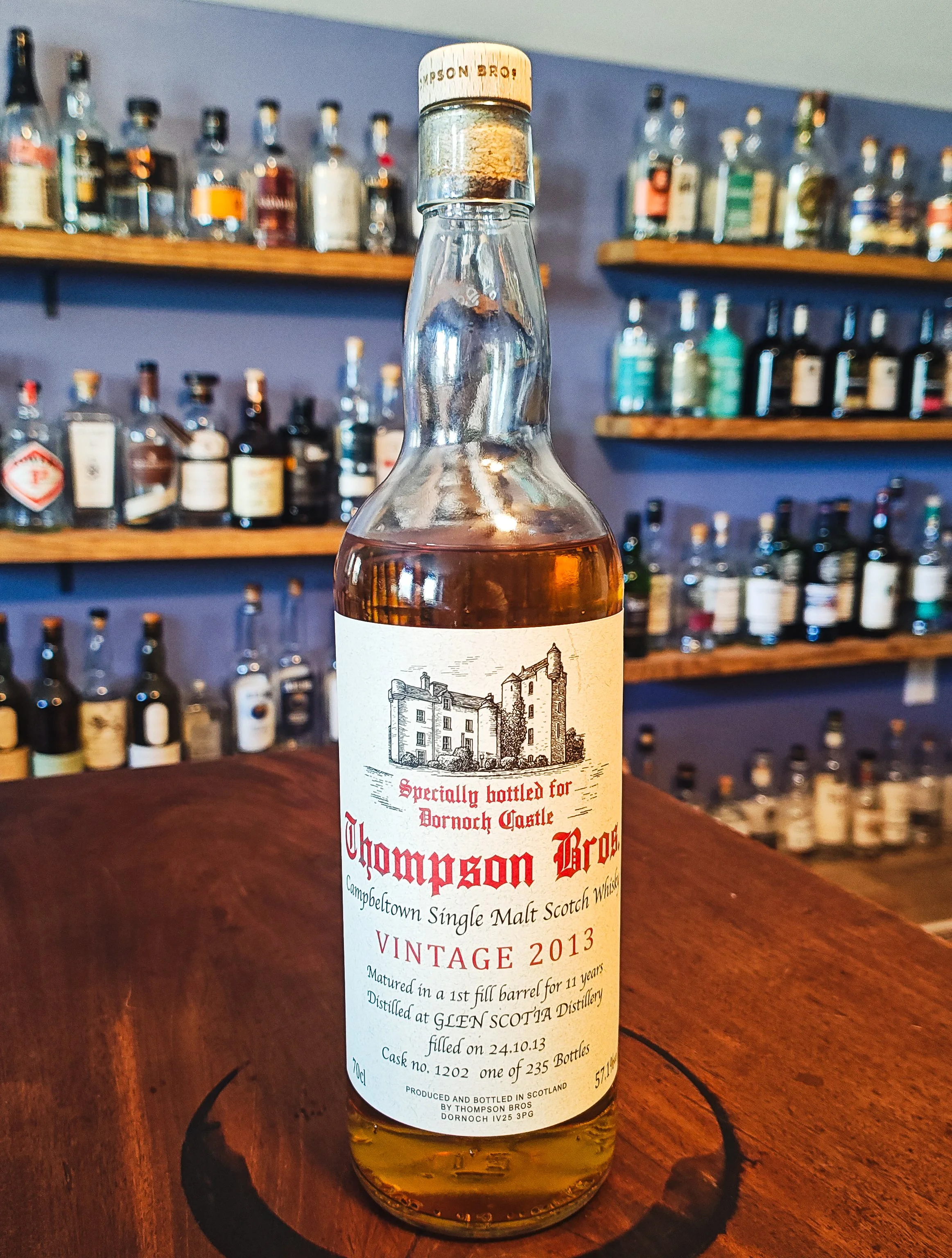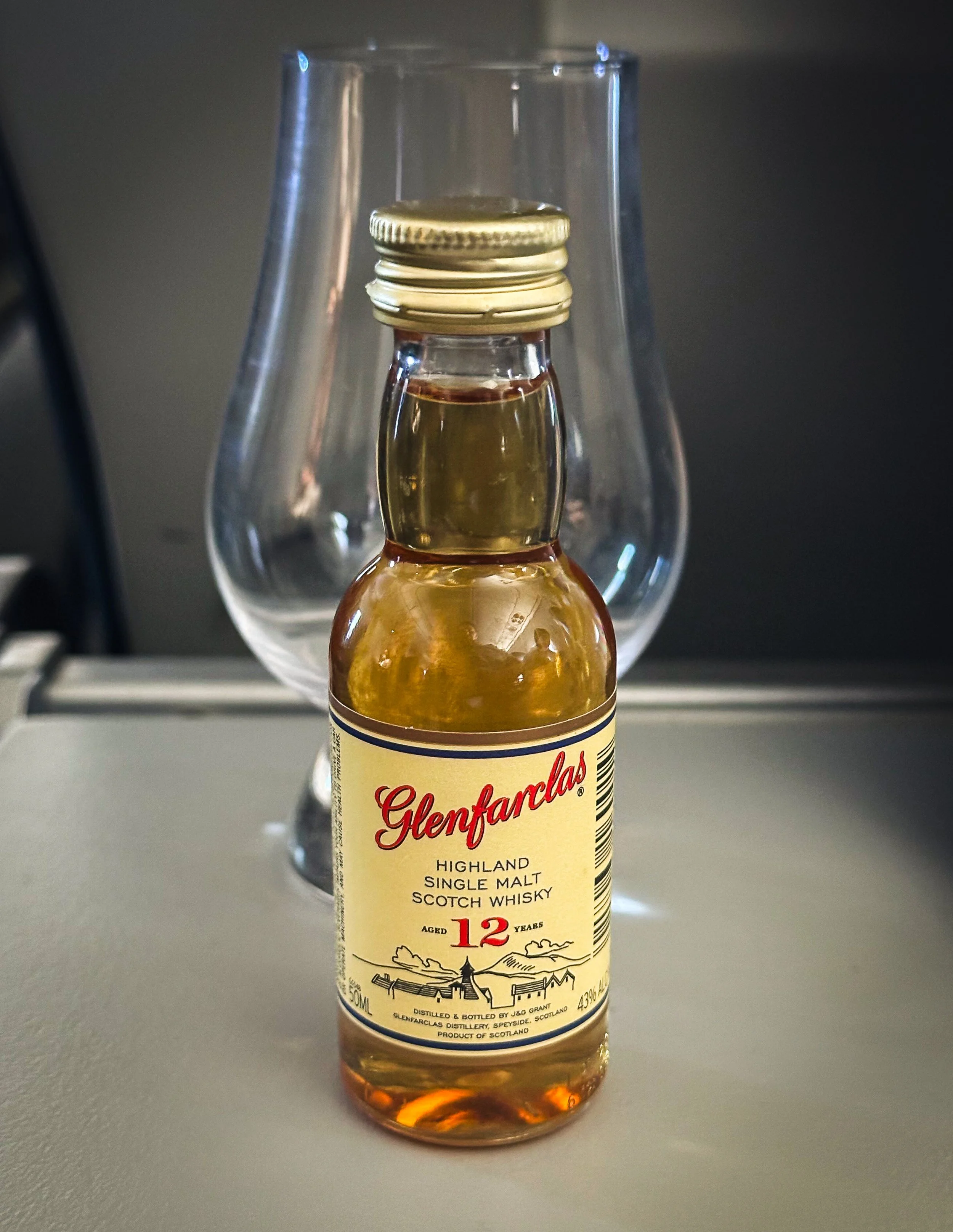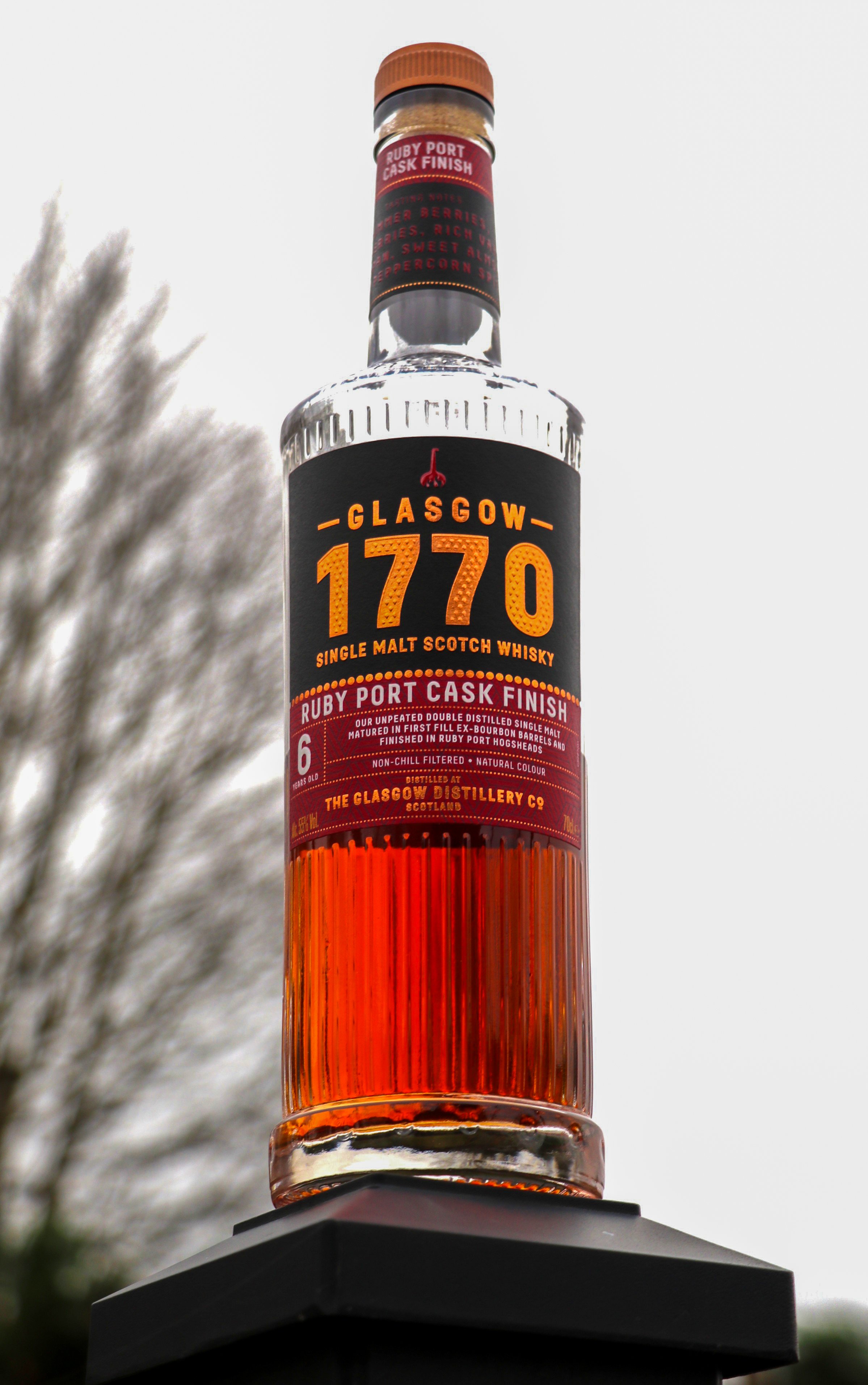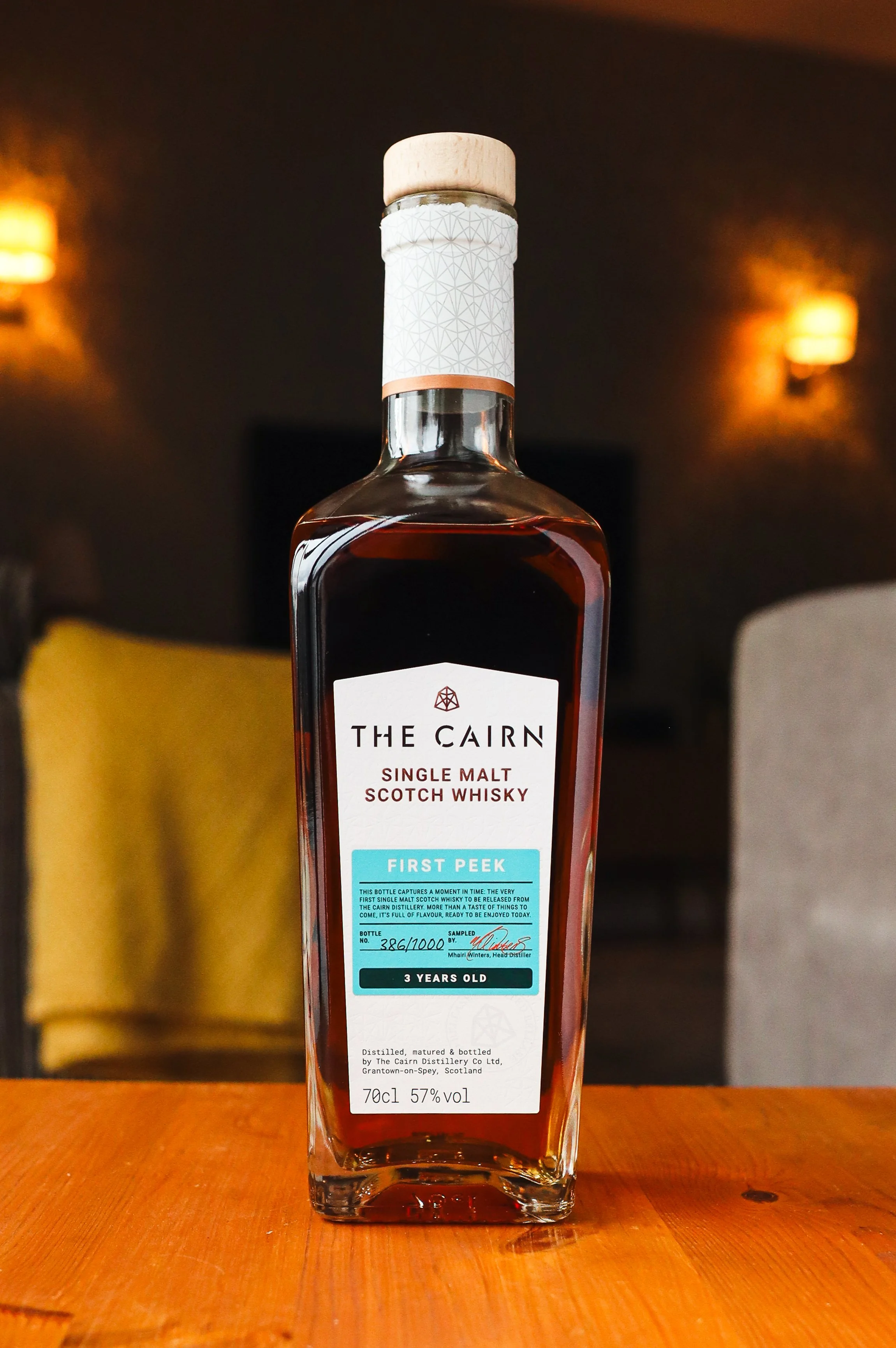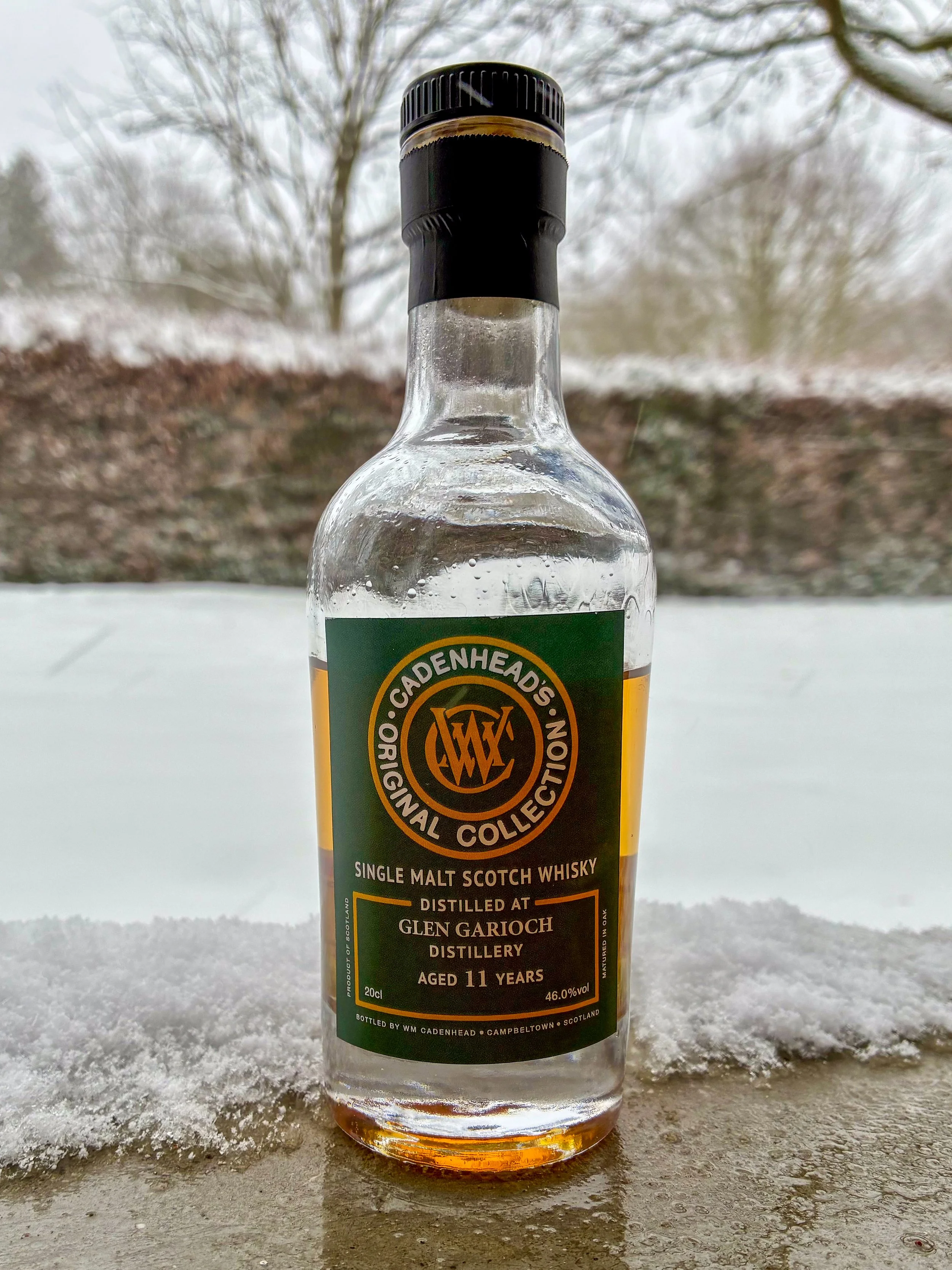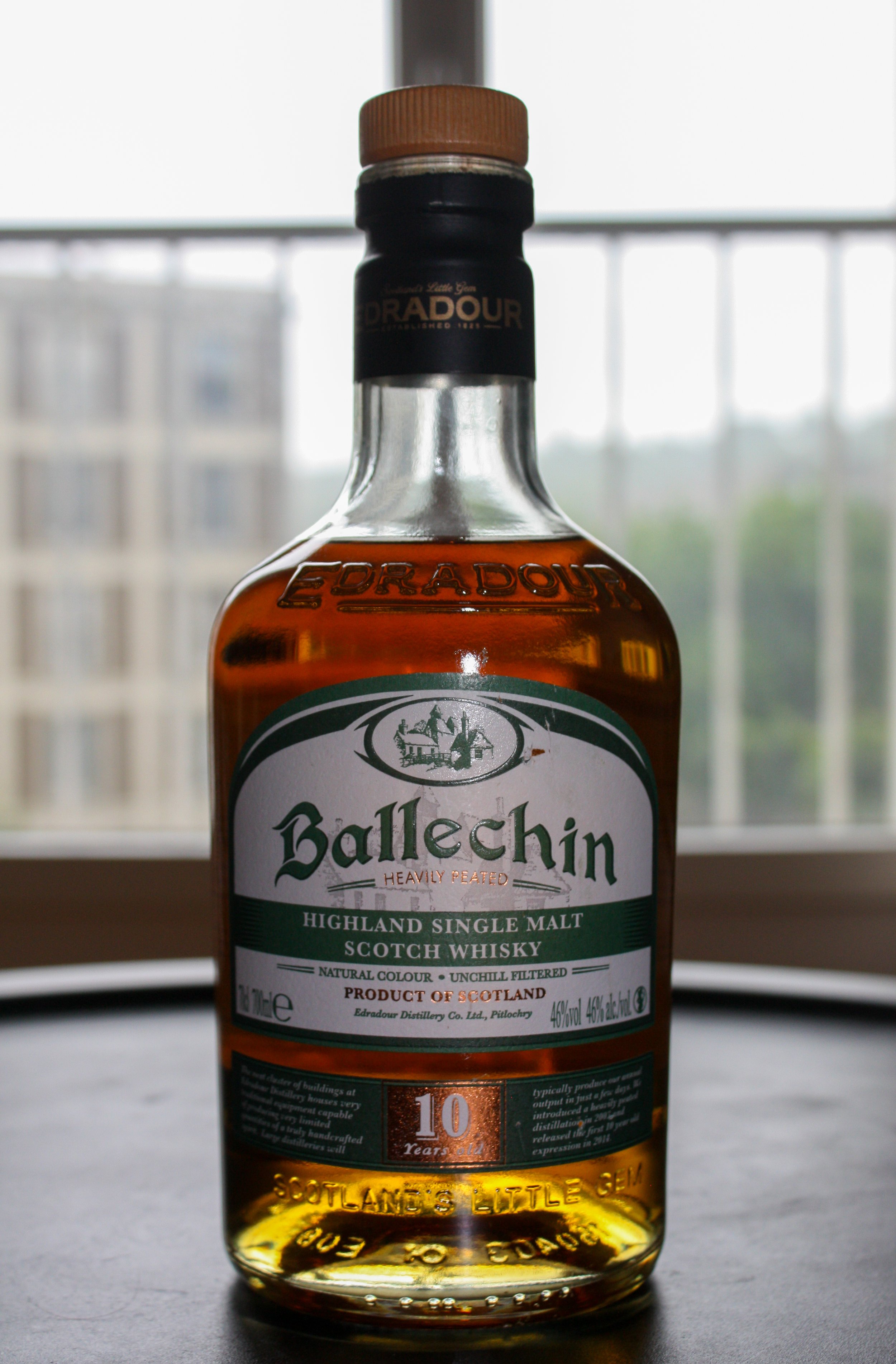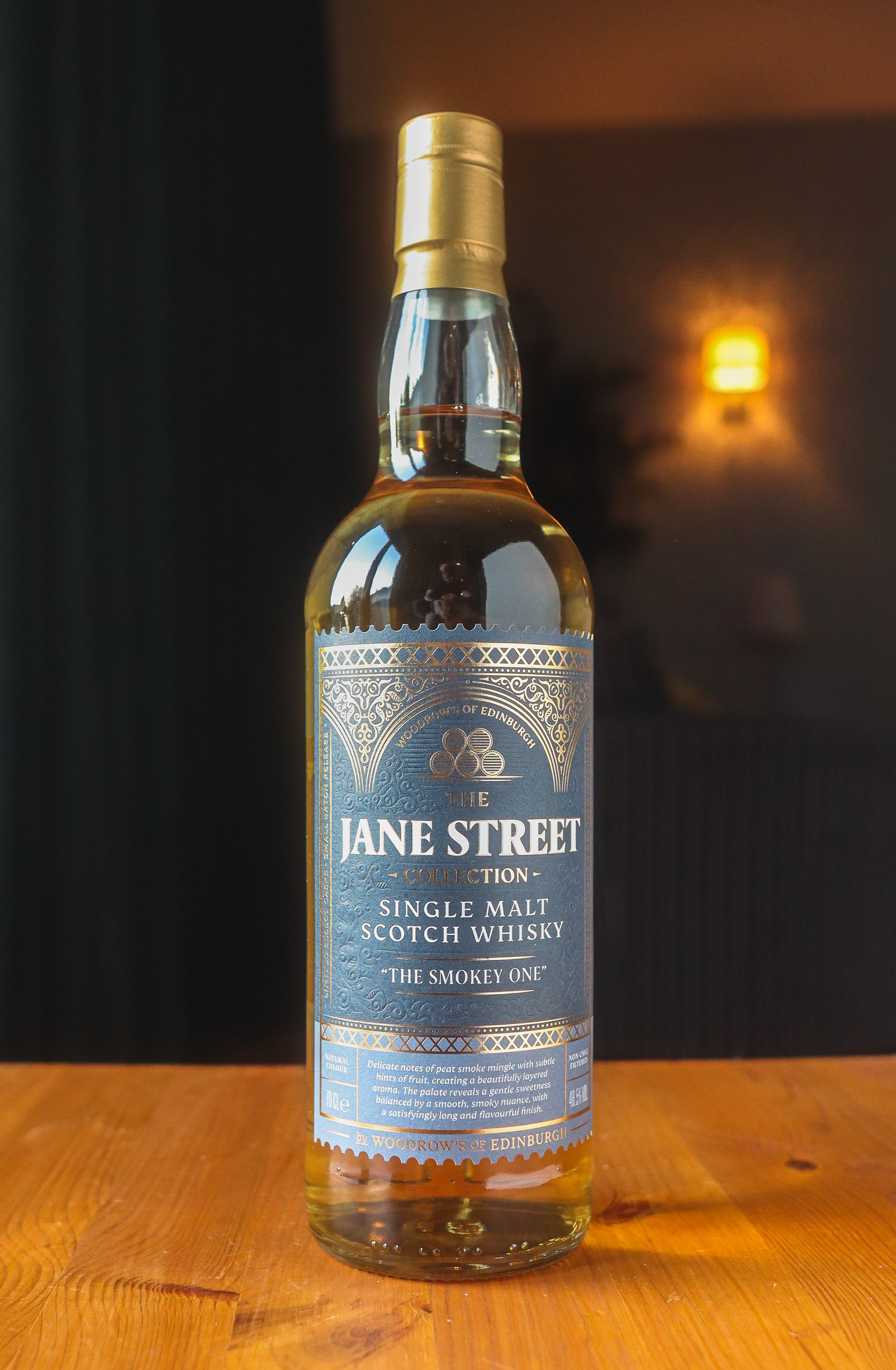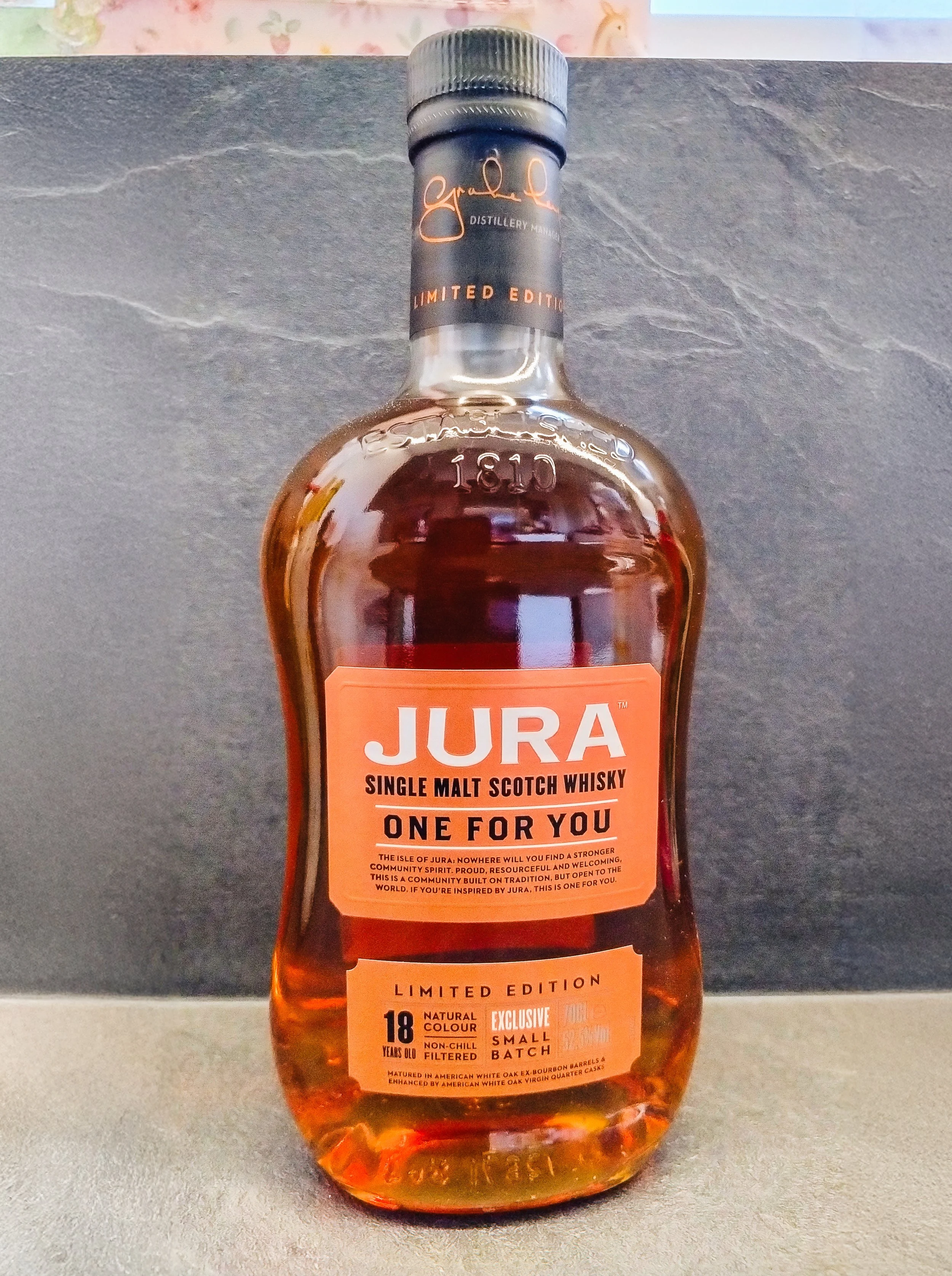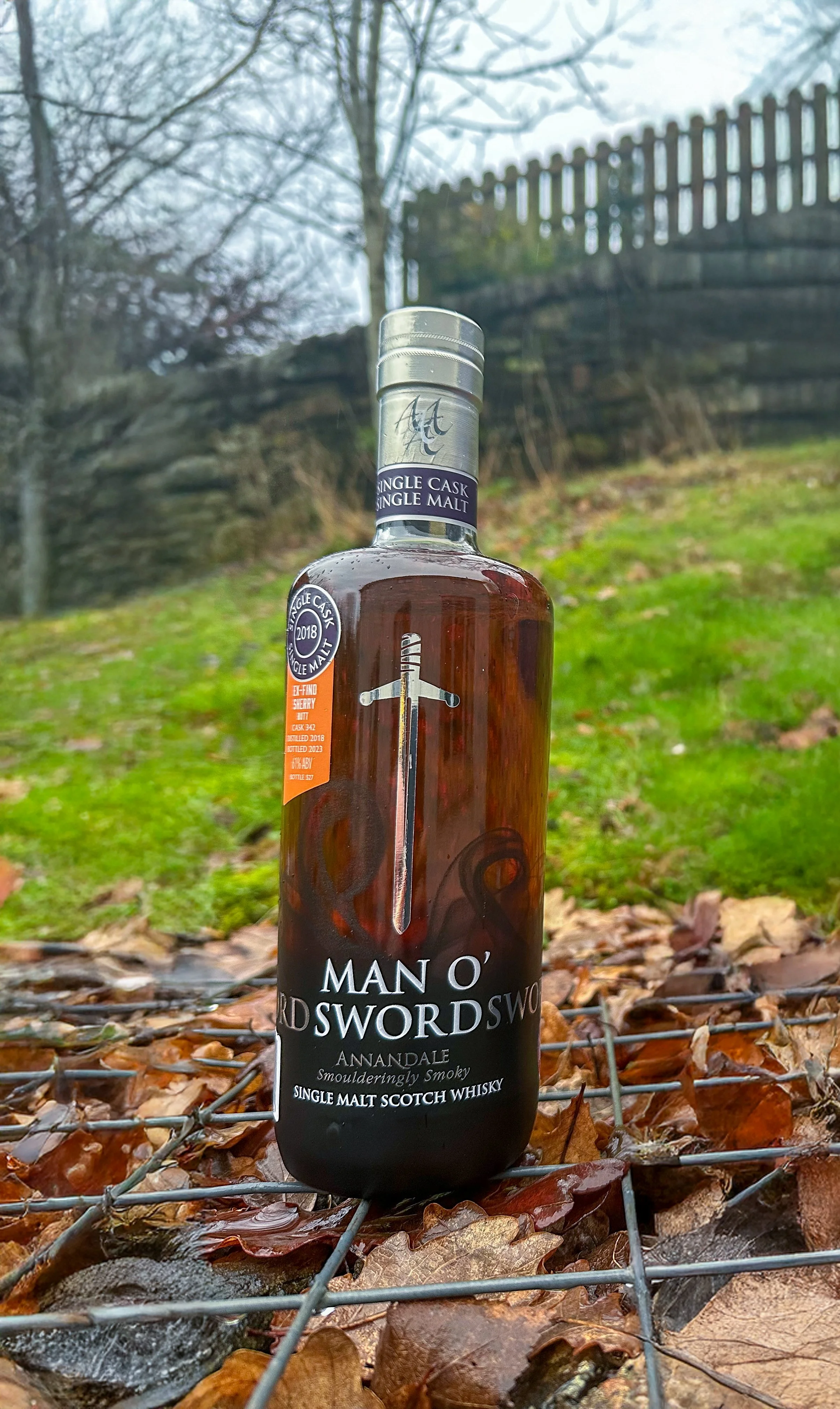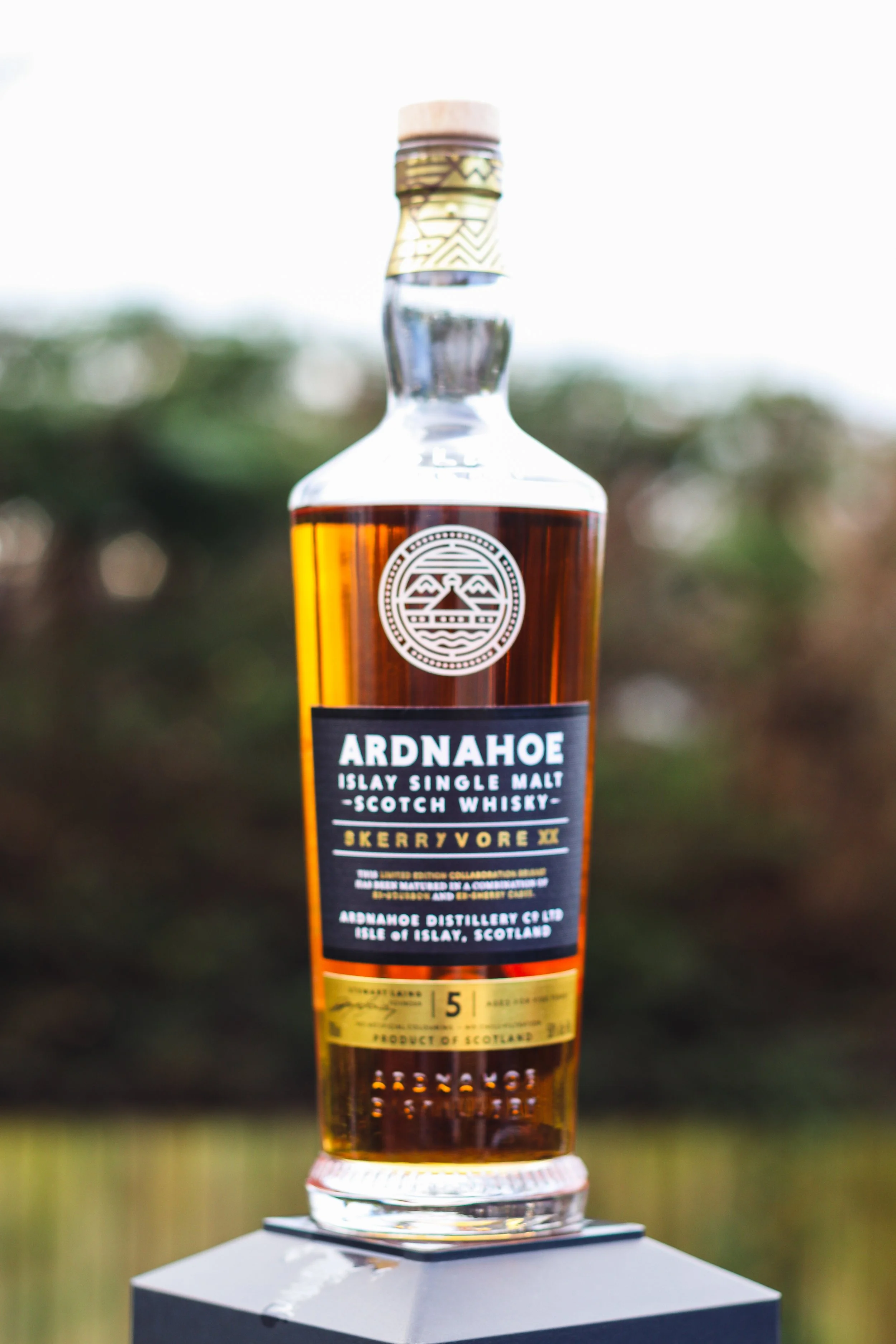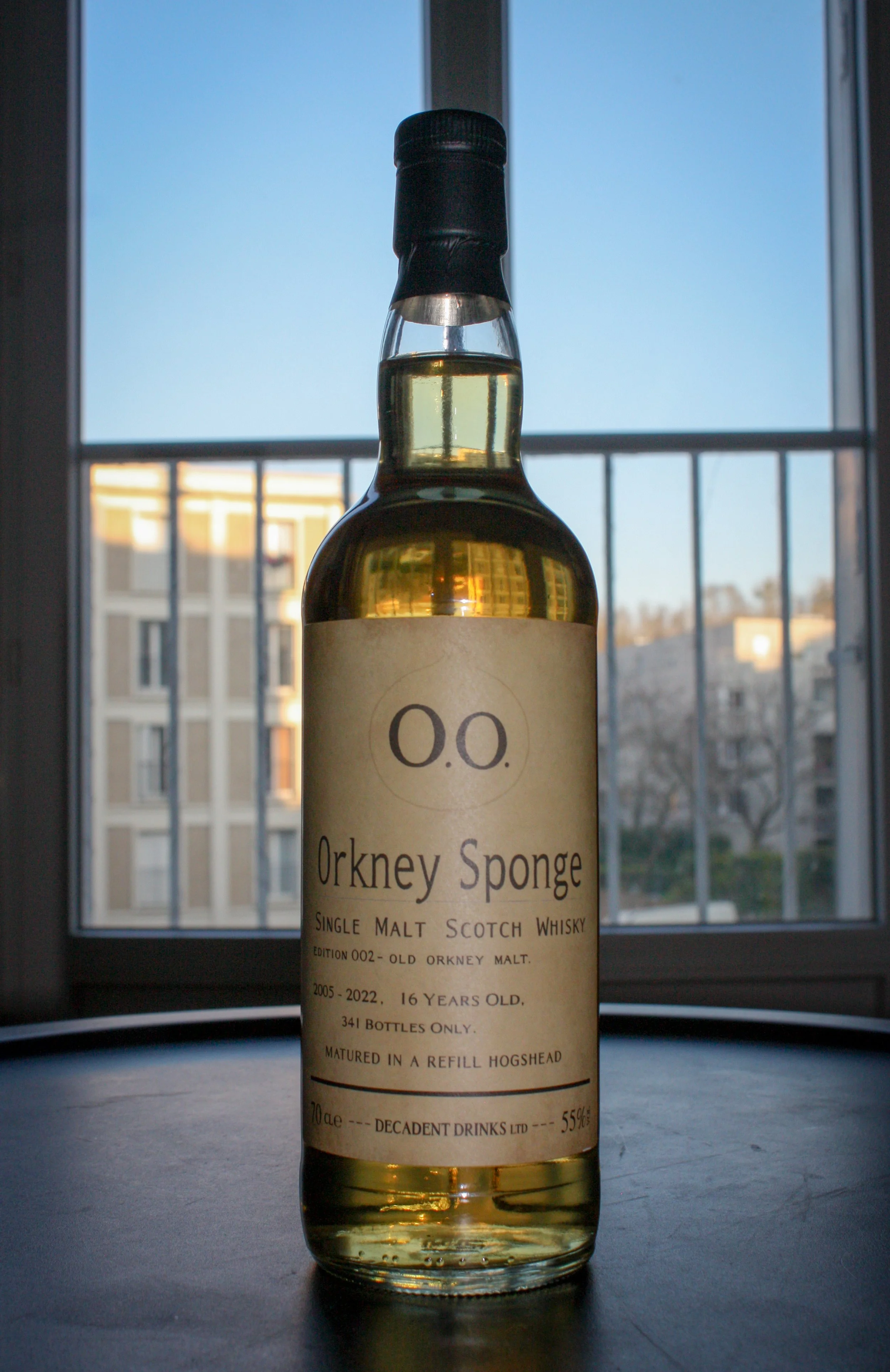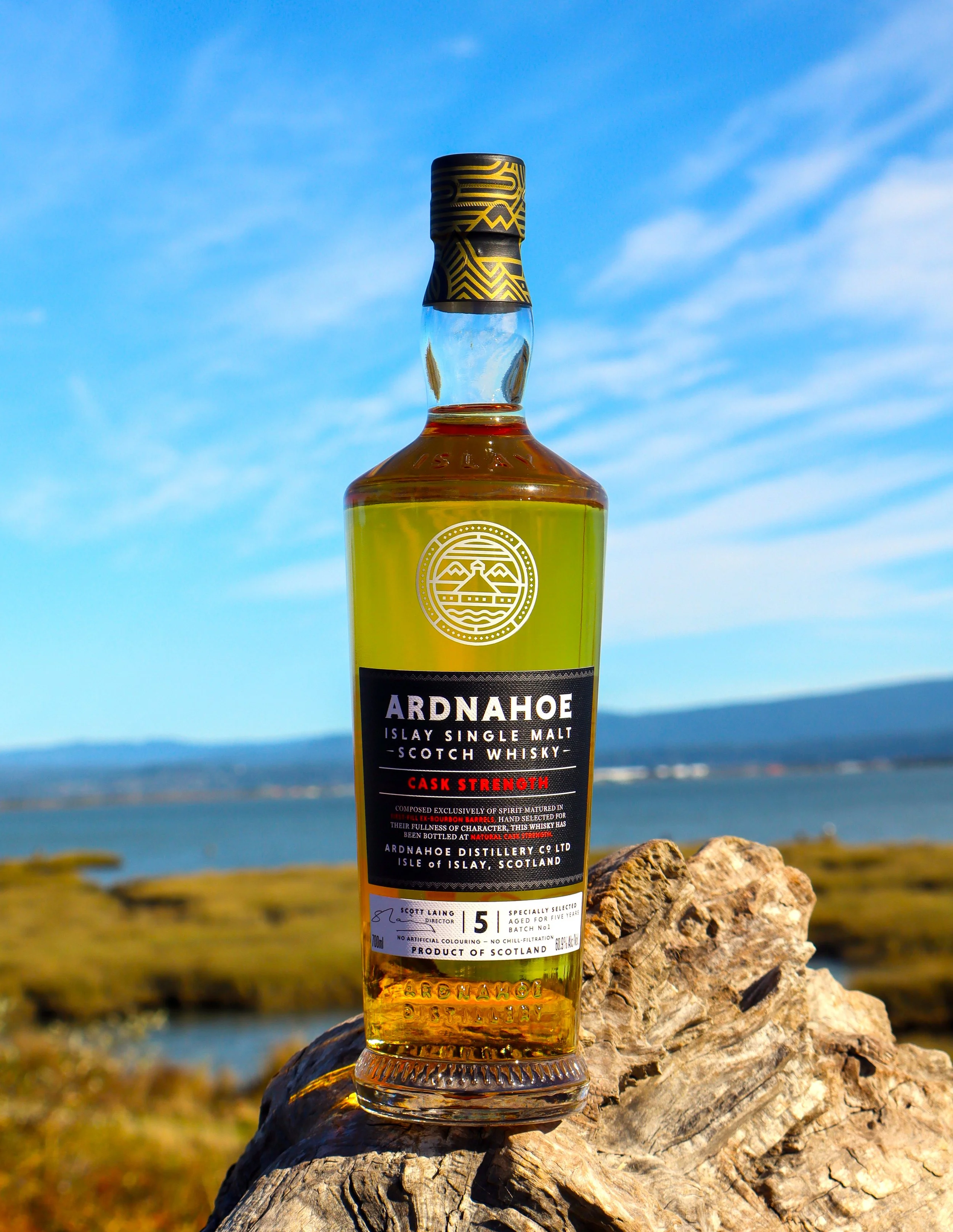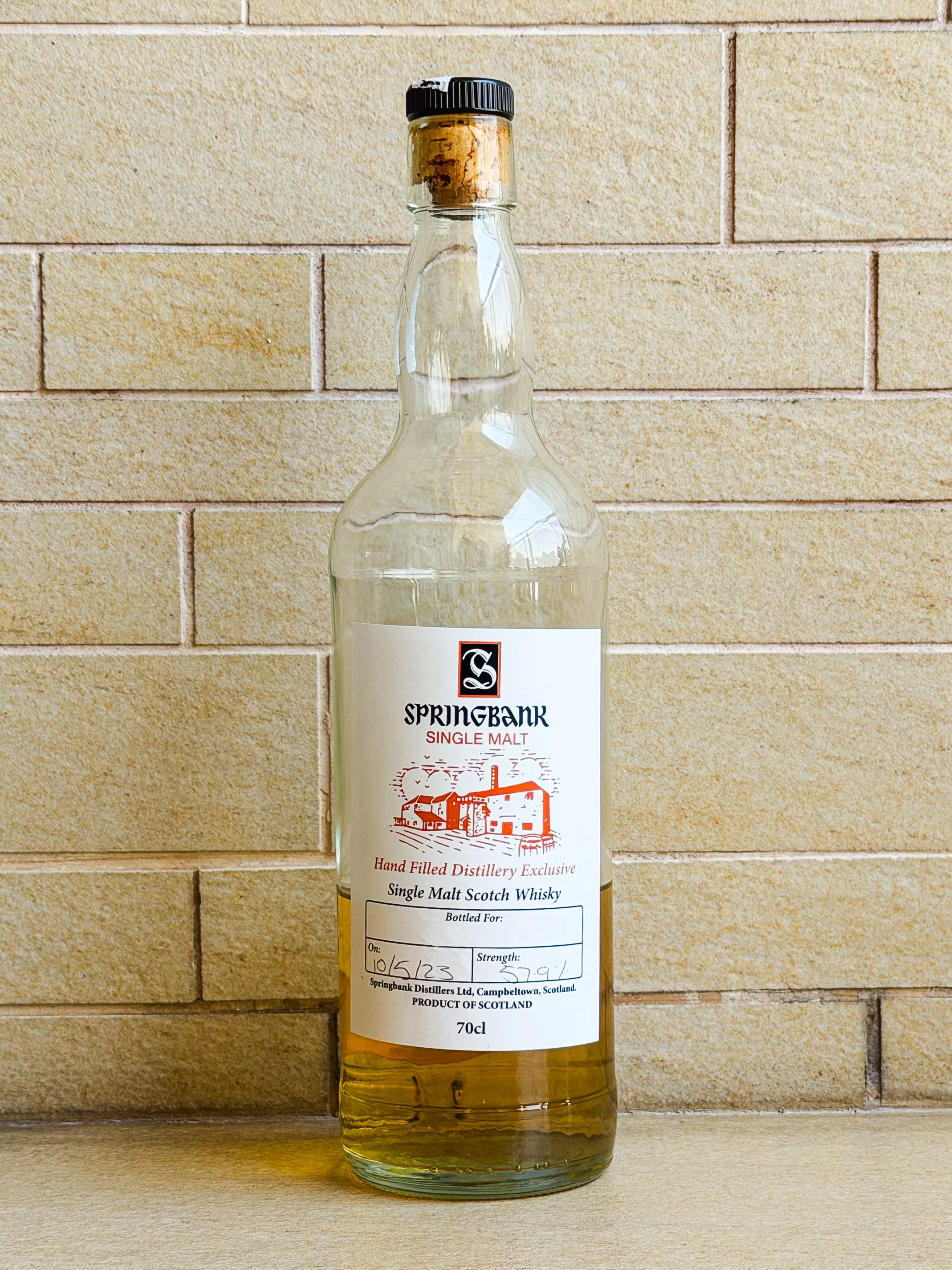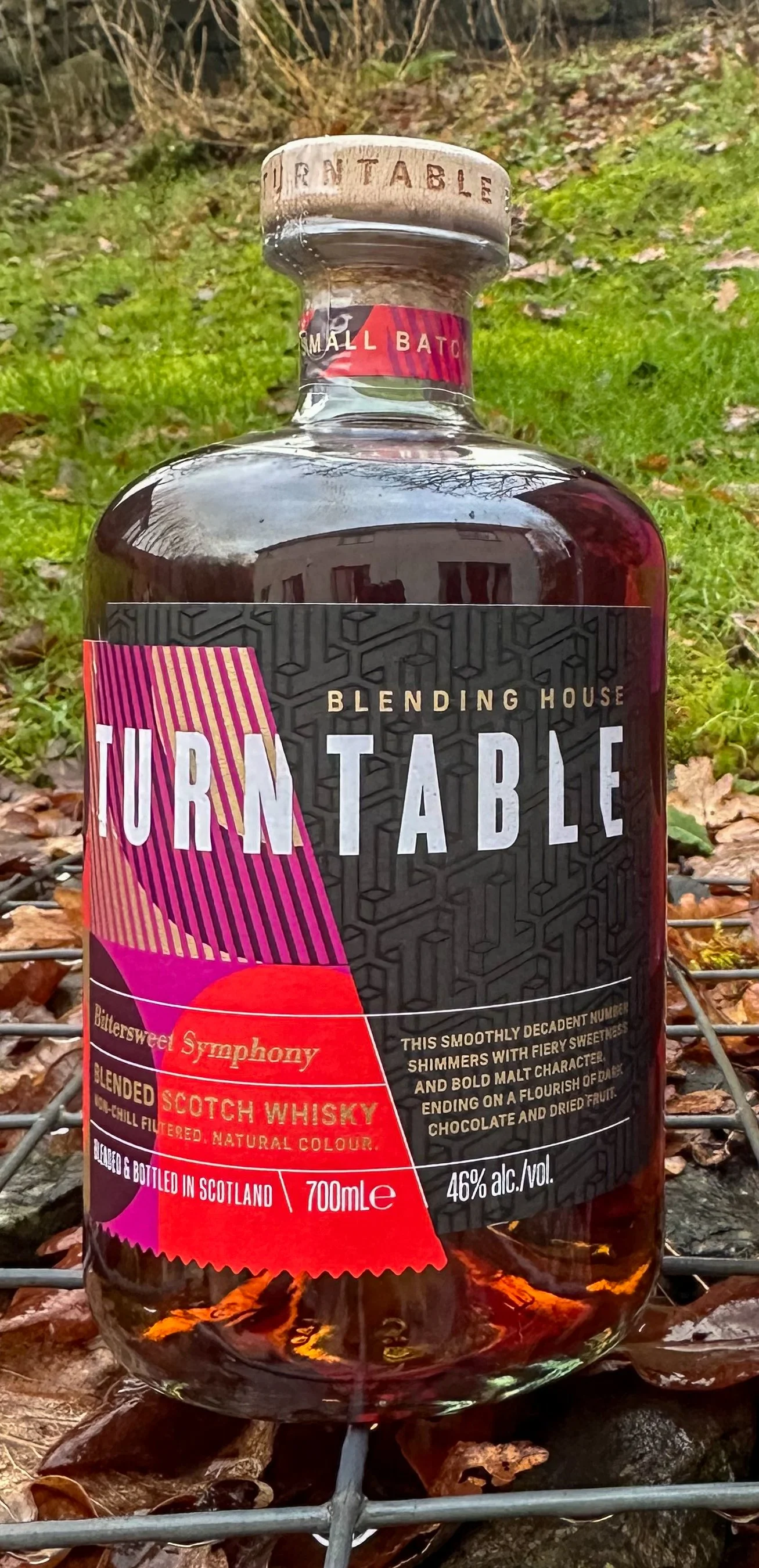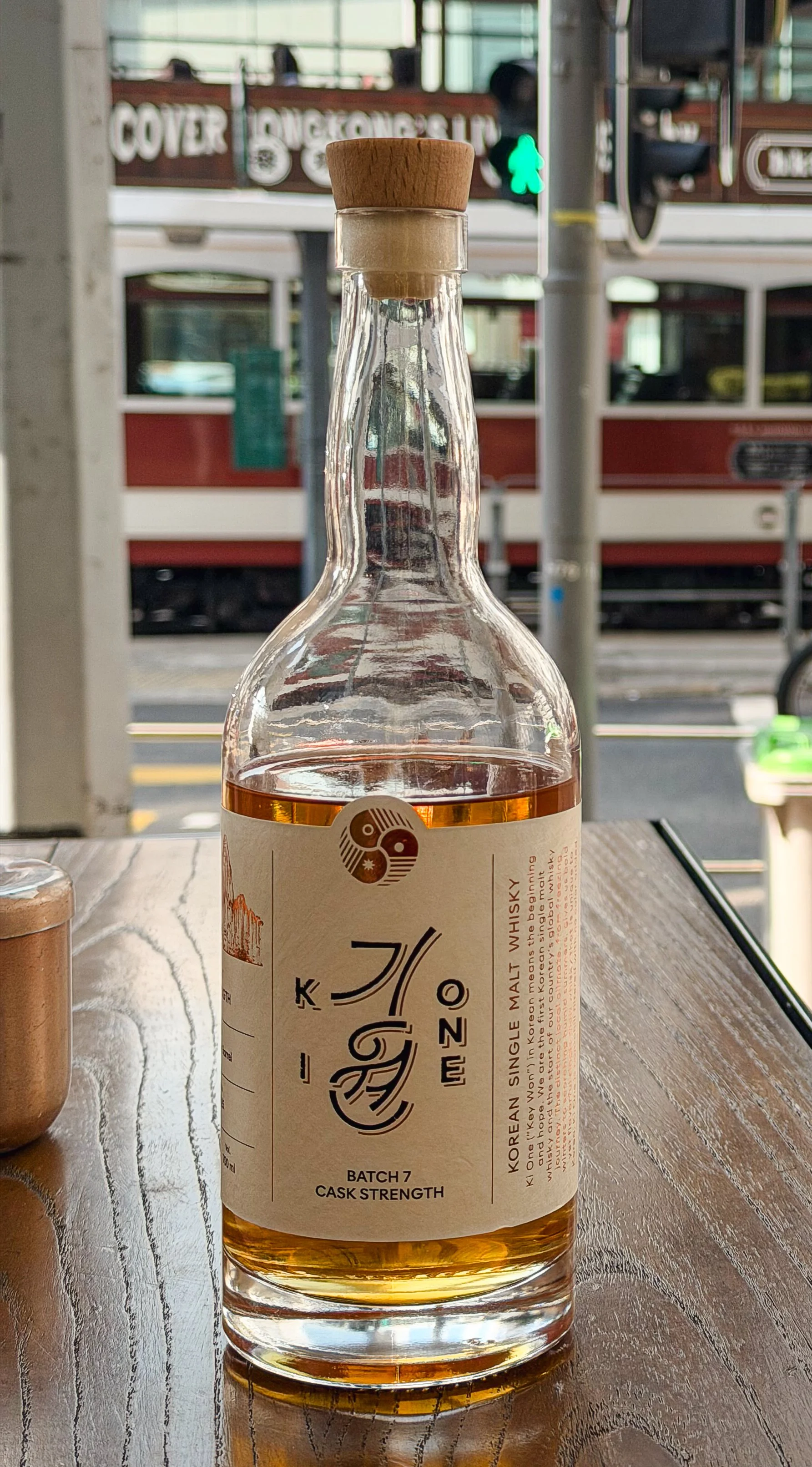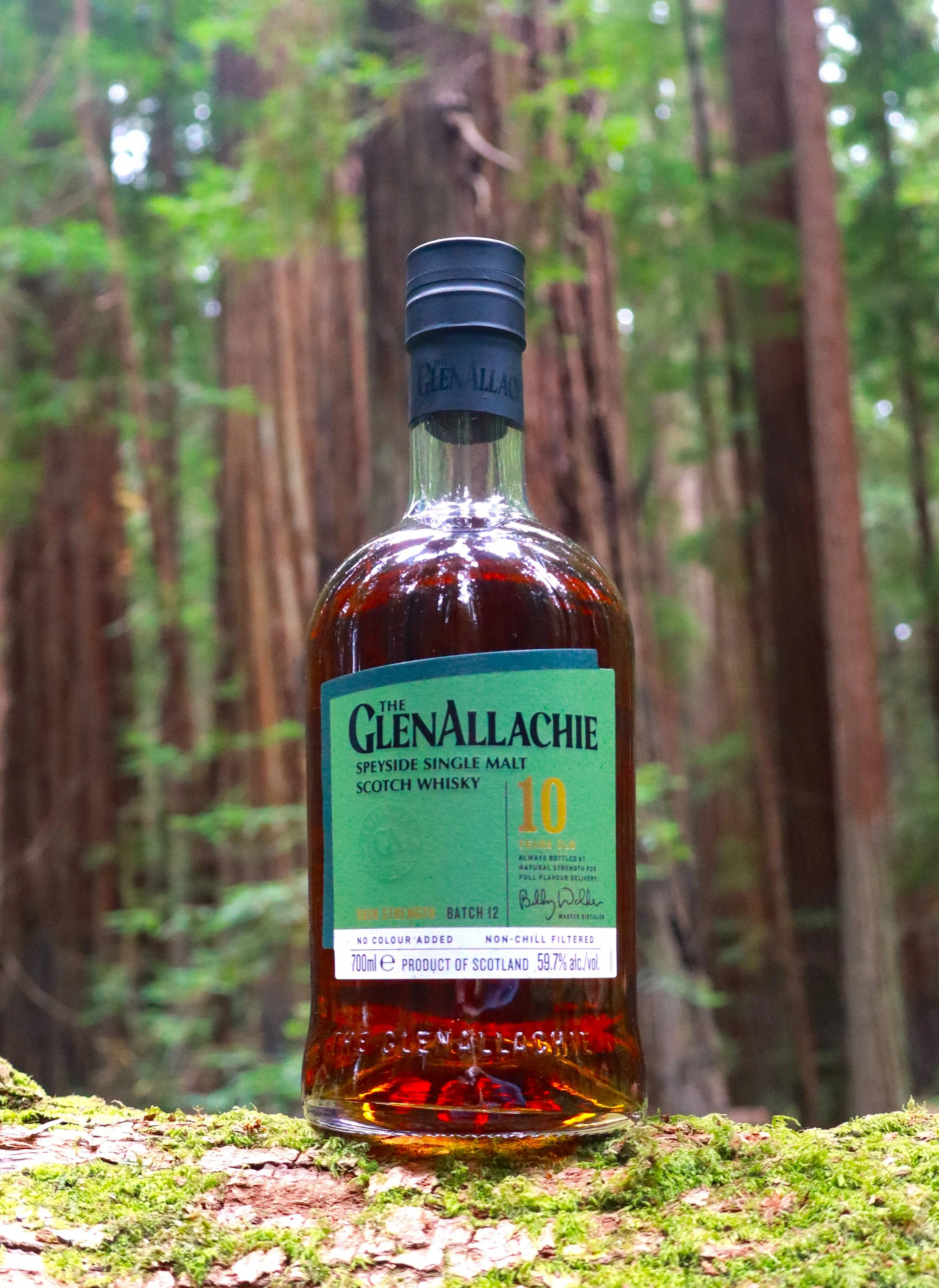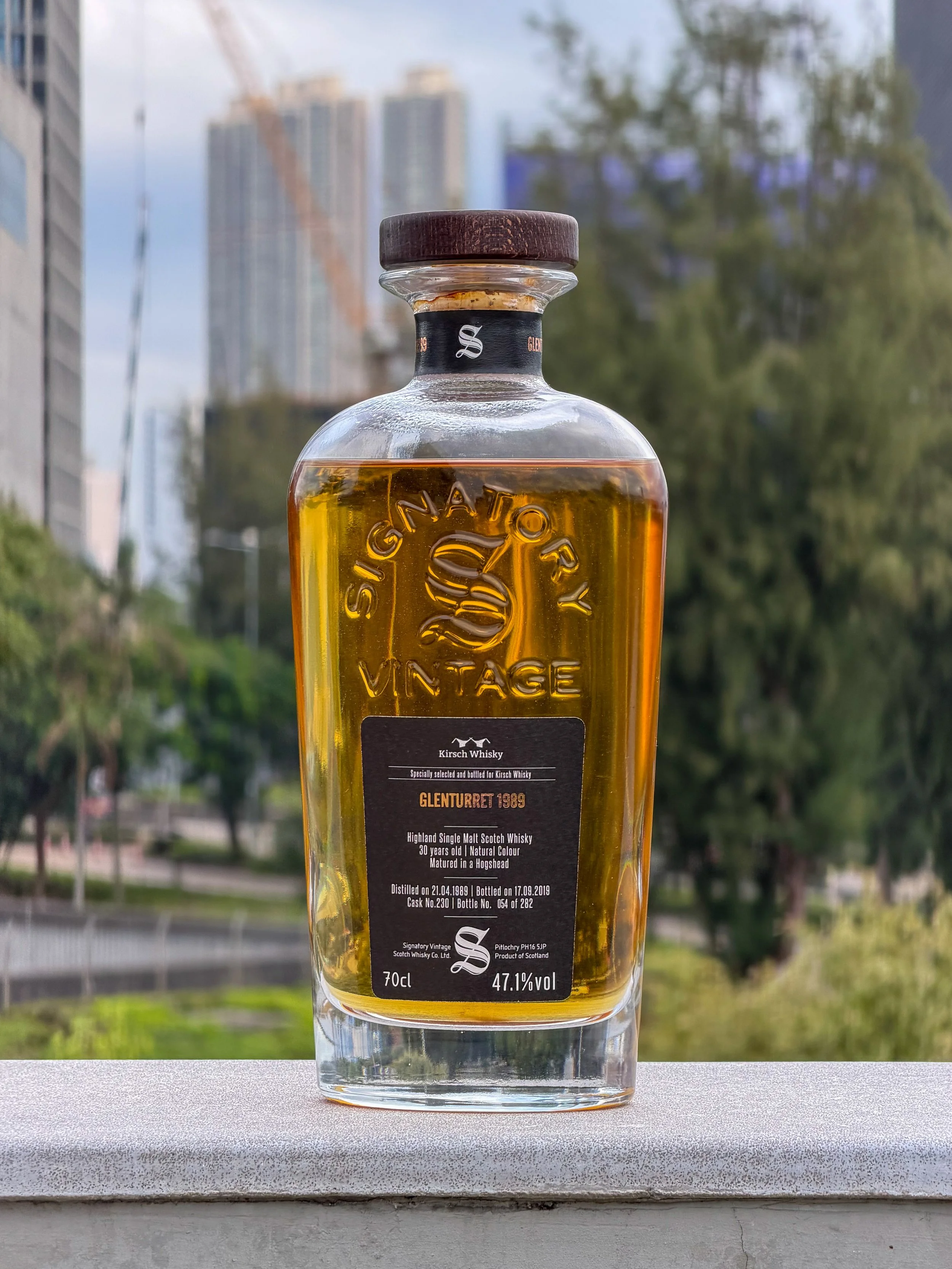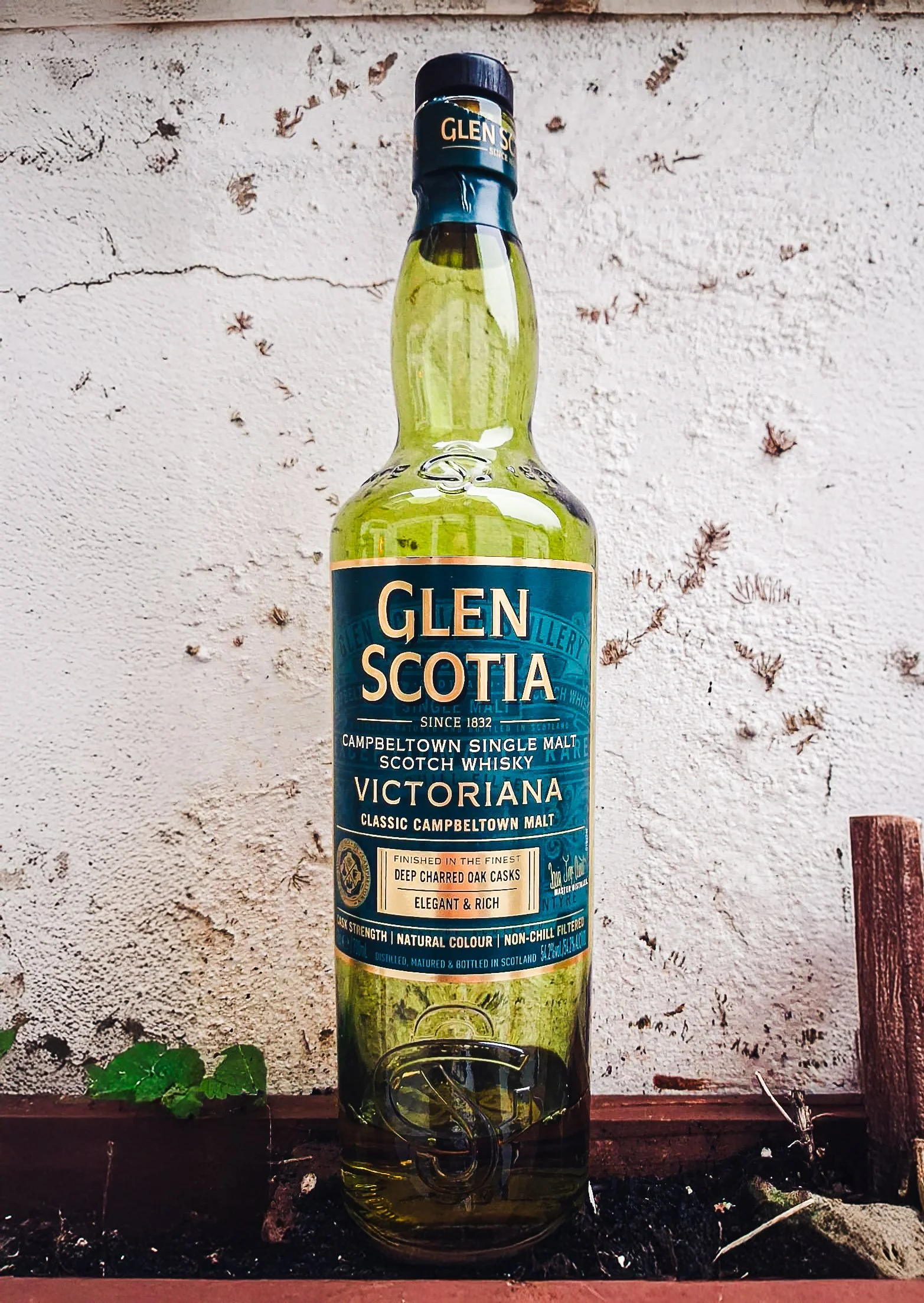Glen Moray 15yo 2007 BBR
Berry Brothers 2007 for Kensington Wine Market | 53.6% ABV
Score: 7/10
Very Good Indeed.
TL;DR
A summer breeze
There’s Something in the Water
A large portion of my time and energy these days has been spent in the pursuit of flavour from a source other than alcohol. Yes, for close to two years now my growing obsession has been the gastronomical experience of coffee.
I’ve spent endless hours researching, sourcing, brewing, experimenting, and tasting my brews. We even recorded a coffee themed podcast with the very supportive Dramface colonials where I attempted to walk them through a coffee tasting and draw some parallels to whisky along the way - and there are a lot of comparisons between the two to be made.
Coffee has an advantage over my original flavour obsession, whisky, in that I can drink it every day. Also, for me, coffee consumption typically results in greater productivity, not less, and I find overconsumption to be quite unpleasant to the point that I approach being over-caffeinated in the same way my cat approaches a filled bathtub.
This is a great deterrent for personality types like me who are addicted to slamming everything in sight down the hatch at all times. Overall it’s quite a pleasant experience to have my quiet coffee time, going on a contemplative flavour journey usually in the early hours of the morning. I consider it my daily meditation.
Lately I have become obsessed with the water I use to brew my coffee. So much so that I am now immune to the eye rolling that occurs when my friends and family realise that my obsession with brew water is, in fact, not a gag. And yes, I do carefully craft my own coffee water to a very specific recipe I have developed which blends distilled water with my local tap water and adds back some hardness in the form of magnesium chloride. And yes, it does make a big difference. Thanks for asking.
In filter coffee, 98-99% of what is in your cup is water. So, if we’re going to be serious about flavour the main ingredient can’t be ignored.
My local tap water is actually quite okay. Drawn from intake pipes that go out a few kilometers offshore into the middle of Lake Ontario, it is safe and consistent, has no off notes or excessive chlorination, and is perfectly fine drinking water. It is moderately hard, which means there is a moderate amount of minerals dissolved within, with a general hardness (GH - related to the amount of dissolved calcium and magnesium) of about 120 ppm. This is fine for coffee brewing, if perhaps a bit harder than ideal. The impact of GH on coffee brewing is still a bit of an unknown and sometimes contentious topic in the coffee community.
Where my table eau du tap does have a slight drawback is in what is known as carbonate hardness (KH), which sits at about 90 ppm. KH refers to the concentration of carbonate and bicarbonate ions that act as a buffer, resisting changes in PH. Since a key component in the enjoyment of specialty coffee is the acidity presentation, water with too much buffering capacity can make bright, fruity coffees come out quite dull. This is why most coffee authorities recommend a KH of 40 ppm or lower for coffee tasting.
Needless to say I fell down an embarrassingly nerdy rabbit hole of technical details on water composition, performing endless experiments in the pursuit of my perfect brew water while also trying to minimise as much as possible the need to buy jugs of distilled water or expensive designer mineral concoctions marketed to coffee enthusiasts.
But through all of this, I was missing something.
Earlier this year I attended an event put on by my whisky club. In this particular session we were tasting various Glenallachie releases of sherry and wine finished whiskies alongside an example of the applicable sherry or wine. It was a great session and definitely eye opening, as it became abundantly clear that one plus one doesn’t always equal two when it comes to the interactions between whisky and a first fill finishing cask. But that’s a discussion for another time.
At this session, one of my club mates casually mentioned that when she adds water to her whisky, she only uses distilled water to avoid contamination with minerals and other trace contaminants that could be present in tap water. A light went on in my head. No, more like a flash bomb explosion. I was stunned. Why in the bloody hell had it never occurred to me that what I’ve been learning all this time about water in the context of coffee could equally apply to water for whisky?
Despite my coffee water obsession, I do know that water is not sexy. A large portion of the whisky we drink is water, yet I feel the impact is often ignored or downplayed. My guess is that it’s due to this inherent unsexyness or lack of marketability. I’ve heard anecdotally that some large bottlers use local municipal water. We also know that some distilleries lean on their water source in marketing. I’m assured by my more knowledgeable Dramface colleagues that dilution water is in fact something that distilleries pay attention to.
I texted my friend Chris and said, “You gotta come over and help me do a whisky experiment!”
He said, “ok.”
Review
Glen Moray 15yo, 2007 Single Cask, ex-bourbon barrel #6268, Berry Bros & Rudd, bottled for Kensington Wine Market, 53.6% ABV
£65 paid, now sold out
Chris arrived by bicycle on a hot and sticky Sunday evening and we set up our tasting in the comfort of my air-conditioned living room. We had three different waters to try out - the first was tap water (GH 120 ppm, KH 90 ppm) filtered via activated carbon and left in an open vessel on the counter to reach room temperature and degas any trace amounts of chlorine. The second was pure distilled water with no dissolved solids (GH 0 ppm, KH 0 ppm). The third was distilled water to which I had added magnesium chloride to a level that would approximate the GH of the tap water (GH 120 ppm, KH 0 ppm).
We poured three glasses with 30ml Glen Moray and 5 ml water, arriving at an ABV of approximately 46% for each dram. Finally, we had my wife secretly label each glass, enabling us to evaluate the effects of the different waters blind.
There’s likely no better whisky for this type of summer homework assignment than this clean and fresh single cask Glen Moray from Berry Bros. & Rudd by way of the whisky studs at Kensington Wine Market in Calgary. Presumably at cask strength, there hasn’t been any dilution, and at a good age for all the wood interactions to play out and get us closer to a chemical steady state. This leaves it as a sort of blank slate for our experiment.
The following tasting notes are a blend of both my notes and Chris’ notes, tasting both neat and diluted with the various waters.
Score: 7/10
Very Good Indeed.
TL;DR
A summer breeze
Nose
A summer breeze over fresh ripe orchard fruits - apples, pears, peach, apricot. Honeycomb. Fresh laundry in a flowery meadow.
Palate
Tinned pears in a thick honey syrup. Lots of grip, so fresh. Green apple, floral, coconut oil and vanilla mid palate, honey granola with dried fruits. Sweet grain. Oily liquorice after some time in the glass. The alcohol is slightly overwhelming up front when neat, but it has a very long coconut finish.
The Dregs
The blind comparison of different dilution waters yielded surprising results. I wasn’t so sure we’d be able to reliably tell the difference, but not only was the impact significant, we were unanimous in our order of preference. One of the glasses clearly stood out - with a smoothed out, but still detailed fruity front palate and a preserved long and elegant coconut finish. An obvious improvement to sipping this single cask Glen Moray neat. To my great disbelief, this was the whisky diluted with tap water.
The dram produced with distilled water was clearly the worst. The initial bite completely squashed and the finish cut short - no juicy fruits and no luscious coconut or liquorice. MgCl-spiked water produced a dram that fit neatly between the other two in character. It still had some grip and fruit upfront and a lesser but still pleasant finish.
So, the conclusion from this limited experiment is that tap water is best (at least for this specific whisky and for my specific tap water).
Score wise, before our tasting session, I was thinking eights all day for this Glen Moray. However, my tasting partner talked me down by listing other whiskies that we had previously tasted together where we both agreed they would an eight on the Dramface scale: Glencadam 21, a Cadenhead's 24yo refill Linkwood, and a 10yo single cask oloroso Benromach to name a few candidates that are difficult to match in terms of sheer quality and pleasure. As always, my score is unmodified by price.
Chris also correctly pointed out that when consumed neat, this Glen Moray is a bit hot on entry which masks some of the delightful upfront fresh fruity notes. It really does need a drop to loosen up.
The water choice is up to you.
Score: 7/10
Tried this? Share your thoughts in the comments below. AMc
-
Dramface is free.
Its fierce independence and community-focused content is funded by that same community. We don’t do ads, sponsorships or paid-for content. If you like what we do you can support us by becoming a Dramface member for the price of a magazine.
However, if you’ve found a particular article valuable, you also have the option to make a direct donation to the writer, here: buy me a dram - you’d make their day. Thank you.
For more on Dramface and our funding read our about page here.














